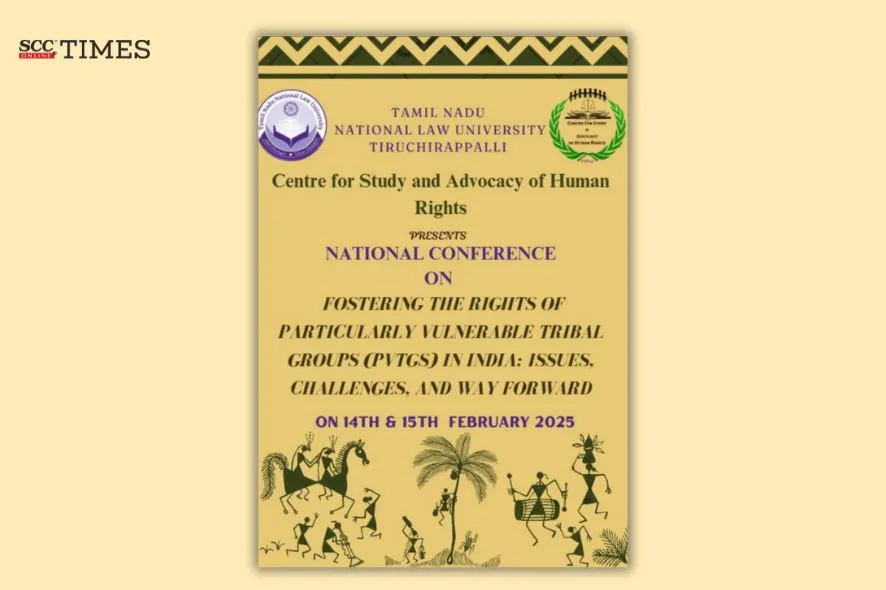About the University
The Tamil Nadu National Law University (TNNLU) was established by the Government of Tamil Nadu by an Act of the State Legislature (Act No. 9 of 2012) to provide quality legal education at the global level.
TNNLU’s Mission is to achieve global recognition as an institution of eminence and excellence in all spheres of legal education, rooted in an interdisciplinary approach to the study of law, such that the graduates of TNNLU will be independent, critical thinkers, and socially responsible human beings.
TNNLU offers two undergraduate programs, viz, B.A. LL.B., (Hons.) and B.Com. LL.B., (Hons.); three One-year LLM programmes, viz, Corporate and Securities Laws, Intellectual Property Laws and Natural Resources Law; and Ph.D. Programme in Law.
TNNLU is included in the approved list of universities by the UGC and Centre for Legal Education recognized by the Bar Council of India. TNNLU is a member of the Shastri Indo- Canadian Institute and it is a permanent member of the Indian Academy of Social Sciences. TNNLU is also an empaneled institution with the Competition Commission of India.
About the Centre
The Centre for Study and Advocacy of Human Rights (CSAHR), Tamil Nadu National Law University established in 2021, focuses on interdisciplinary research, spreading human rights literacy, and fostering advocacy culture among students. It organizes workshops, seminars, and moot courts while publishing research on human rights law. CSAHR aims to promote, protect, and enforce human rights through education, engagement, and advocacy initiatives.
About the Conference
India, known for its rich cultural diversity, is home to over 700 tribal communities, among which the Government has identified 75 communities as Particularly Vulnerable Tribal Groups (PVTGs), each with unique cultural practices, languages, and social structures. These PVTGs represent the cultural diversity and rich heritage of India’s tribal communities. These groups, identified by the Government of India as being particularly vulnerable due to their declining or stagnant populations, low levels of literacy, pre-agricultural levels of technology, and economic backwardness, require special attention to address their unique challenges. PVTGs often reside in remote, isolated regions, which further exacerbates their exclusion from mainstream society and developmental opportunities.
Despite numerous policies and programs aimed at improving their living conditions, PVTGs continue to face significant socio-economic, health, and educational challenges. These issues are compounded by the effects of modernization and globalization, which threaten their traditional lifestyles and cultural identities. Moreover, legal and administrative frameworks often fail to adequately protect their rights to land and resources, leading to displacement and loss of livelihood.
These significant challenges, including displacement, loss of traditional livelihoods, and limited access to education and healthcare, necessitates for a more focused efforts for their development and empowerment.
This conference seeks to bring together a diverse group of stakeholders, including policymakers, academics, community leaders, and activists, to engage in a comprehensive dialogue on the rights and development of PVTGs. By focusing on sustainable solutions and fostering collaboration, the conference aims to chart a way forward for the empowerment and inclusive growth of PVTGs in India.
Theme/ Sub-themes
-
Historical and Cultural Perspectives
-
Socio-Economic Challenges
-
Legal Rights and Policy Implementation
-
Forest and Forest Resources Rights
-
Education and Skill Development
-
Health and Nutrition Challenges
-
Women and Gender Issues
-
Climate Change and Environmental Sustainability
-
Governance and Political Participation
-
Technology and Digital Inclusion
-
Criminalization of tribal identities and impact of State violence on the PVTG
-
Effect of development, planning and displacement on the PVTG
Who can submit
The conference is open to all students across various disciplines, Ph.D. scholars, Academicians, Lawyers, Policy Makers, Police Officials and Officials from various Government Departments, Representatives from NGOs.
How to Submit
-
Authors are invited to submit abstracts of the research papers in the link provided below.
-
The link for registration for the conference shall be shared along with an intimation of the selected abstracts.
https://forms.gle/zKvY7KoiggqyXjRL6
Submission Guidelines
-
An abstract of 300 words and 4 to 5 keywords has to be submitted. The abstract shall contain the title of the paper.
-
Co-authorship is allowed up to a maximum of 2 authors.
-
Authors whose abstracts have been accepted shall submit the full paper of 3500 — 5000 words, including footnotes.
-
Submissions should be original and unpublished works.
-
If any submission is found plagiarized, it will be outrightly rejected.
-
Full Paper submission should be submitted in a word document with the subject matter of ‘Full Paper Submission for CSAHR Conference, TNNLU’ in the link which will be circulated.
-
Acceptance of full papers will be intimated before the conference. Only accepted papers will be allowed to be presented.
Processing Charges/Fee
Students: Rs. 500/-
Professionals and Scholars: Rs. 750/-
Contact Details
For any further queries or assistance regarding the conference, feel free to contact us at center for study and advocacy of human rights or ravindranv@tnnlu.ac.in.
To know more click on NATIONAL CONFERENCE BROCHURE






